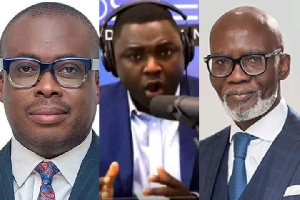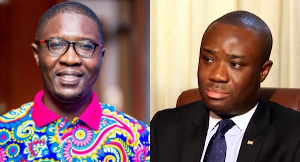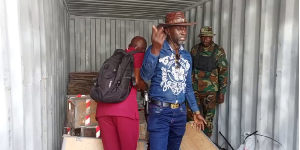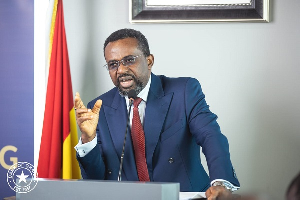Zeqblog Blog of Sunday, 5 January 2025
Source: Okine Isaac
What Will Take Place in Ghana 72 Hours After Mahama's Inauguration, According to Kevin Taylor

Just 72 hours after former President John Dramani Mahama takes the oath of office for a second term, controversial Ghanaian political commentator Kevin Taylor has made audacious and much awaited statements about what can happen in Ghana. Taylor's forecasts have stunned political circles and left Ghanaians on edge as the country's political landscape changes and a hostile environment reignites after the 2024 elections.
According to Taylor, who is renowned for his candid opinions and unrestrained commentary, Mahama's return to power might set off a chain of events that fundamentally shift Ghana's political and social landscape. His remarks are made when the country is still analyzing the election results and considering the prospect of a Mahama-led administration.
According to Taylor's most recent comments, Mahama's swearing-in would result in rapid and significant changes to the administration and the nation as a whole. He believes Mahama would act decisively to restructure important areas of the government within 72 hours. "The judiciary, the security services, and other state institutions will undergo a comprehensive transformation," Taylor said. "Mahama will make sure that these institutions support his vision for Ghana's future, which may not be to everyone's taste."
Taylor claims that tackling what he refers to as the "corruption and inefficiency" that beset the previous administration will be among Mahama's first priorities. Almost soon, he says, a comprehensive inquiry into government officials and companies connected to the previous regime will begin. He issued a warning: "Anyone found to have abused their positions for personal gain will face swift action." "Those who think they are untouchable will receive a strong message from Muhammad without hesitation."
In addition to the administrative and political changes, Taylor projects that during the first few days of Mahama's presidency, Ghana's economy will see substantial upheaval. Taylor said, "Look for economic reforms that will have a direct effect on Ghana's business environment." In order to secure vital funding for development projects, "Mahama will probably concentrate on stabilizing the economy by reducing government spending and re-engaging with international financial institutions."
Taylor's remarks also imply that Mahama will restore diplomatic relations with important African countries and international organizations. He claims that under Mahama's direction, Ghana's foreign policy will revert to a more conventional strategy, bolstering regional ties and elevating Ghana's profile on the continent and international scene.
But not everyone agrees with Taylor's projections. Critics have questioned the timing and veracity of his statements, claiming that they may be an exaggeration intended to elicit a response. Others, especially followers of Mahama, have accepted the idea that the return of their leader will bring about constructive reforms and a new age of government.
Whether Taylor's assertions materialize within the first 72 hours of Mahama's administration is still up in the air. The upcoming days in Ghana's political history will undoubtedly be widely watched due to the high level of tensions.
All eyes will be on the government's initial actions as the country awaits Mahama's official inauguration, and whether Taylor's forecasts prove to be accurate or merely another case of political conjecture. But there is little doubt that Ghana is about to undergo a period of transformation, and the days ahead will show whether Mahama's leadership lives up to the standards established by both his admirers and detractors.
Entertainment



![Kwesi Pratt Jr [Left] and Ahmed Ibrahim [Right] Kwesi Pratt Jr [Left] and Ahmed Ibrahim [Right]](https://cdn.ghanaweb.com/imagelib/pics/884/88455494.295.jpg)









